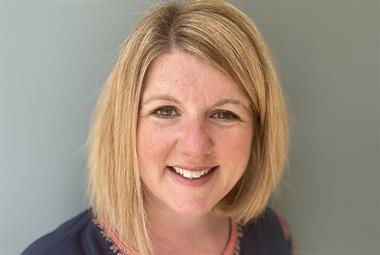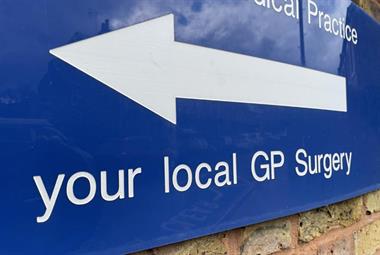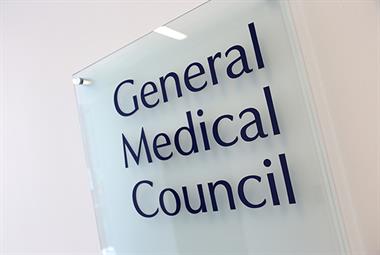This promotional article has been organised and funded for by Gedeon Richter and is intended for UK healthcare professionals.
Social media and the internet are awash with sensationalistic stories and inaccurate information about birth control. As a result, many young people are becoming increasingly skeptical and turning their backs on hormonal contraception, in favour of more natural methods. Below Dr Anne Connolly and Dr Zoe Williams discuss their opinions on this topic.
What does the birth control landscape look like today?
Anne: There are a significant number of contraceptive options available which are free and can be accessed from GP practices, sexual health clinics and pharmacists. These range from barrier methods like condoms, to short-acting methods such as the pill, patch and ring, or long-acting methods like the hormonal injection, intrauterine devices and the contraceptive implant.
The contraceptive pill is used most by young women, I think partly because they don’t know that there are other methods available, and partly because they have concerns about the insertion or injection of long-acting methods.
Zoe: I agree. A lot of young women today tend to go with the pill as standard. But from conversations I've seen online, especially on social media, there seems to be increasing concern among young women about putting synthetic hormones into their bodies. For many, even just the word 'hormone' has negative connotations. Rather than being seen as a natural and fundamental part of human physiology, young women often think first of the potential side effects, both long and short term, of the hormones used in contraception.
Why do you think there is a rise in concern about hormonal contraception among young women?
Anne: We’re very quick to share negative stories – whether that’s on the internet, social media or in print media – and we very rarely see positive stories about birth control. In reality, we know that hormonal contraception can offer many benefits, such as preventing pregnancy and period control, but the benefits are not often discussed.
Zoe: I’d say the most common fear women have surrounding birth control is the long-term effect it might have on their bodies. Young women are beginning to take greater interest in understanding their bodies better, which is why we’ve seen a rise in fertility awareness as a form of birth control. As we know, methods like this have relatively low effectiveness rates, which raises concerns for an increase in unwanted pregnancies.
What role do you think the media plays in influencing young women’s attitudes towards birth control?
Zoe: The way information is made available and shared now is like never before. Things are often taken out of context in the media to get more attention, for example, the potential dangers of the pill will get much more attention than the potential risks of unwanted pregnancy. The balance and rationalisation are often left to the end of an article, and people won’t always read that far.
It's been shown that when the younger generation research health information, they look to TikTok more than the NHS website. This means, for example, someone could search the name of whatever contraception they are taking, and they’ll be taken down a path of content that’s likely dominated by negative experiences. Then due to TikTok’s algorithm, it will keep showing them similar content, driving that message home. It’s a scary cycle.
Anne: I also think it’s very interesting that whilst many women are pushing away from hormones, we’re seeing menopausal women completely embracing them and using HRT. I know they’re different products, but they’re both hormonal, so it’s odd that there’s such a difference in media reporting between the two.
How can healthcare professionals help young women make informed decisions about birth control?
Zoe: Women should absolutely be in tune with their bodies and be able to ask questions. As healthcare professionals, it’s helpful to have an awareness of what social media young people are being influenced by. With birth control, there is no ‘perfect’ option, so it’s important we present all the options that are safe and available and remind young women that ultimately, it is their choice.
Anne: I often ask my patients ‘how unpregnant do you want to be?’. This usually triggers a lightbulb moment where the patient can clearly identify what their contraceptive criteria is, and I can recommend a method that best suits their needs and preferences. It’s also important to communicate that if the method they choose doesn’t work how they’d like it to, it’s okay to try something different. It’s a shared decision, and women should know they can change their mind.
How can doctors build trust during consultations with young women?
Zoe: In general, I think patients do have trust in doctors and nurses, but this is hugely dependent on effective communication. If possible, it’s important to let patients choose who they would like to speak to about their birth control – whether that be a nurse, a doctor, or a pharmacist – given it can be a sensitive and personal topic to discuss.
If a young woman is speaking with their healthcare professional about contraception for the first time, it’s important we understand what their existing knowledge is, and where they got their information from. If they have false information, it’s about providing clarity and directing them to reputable resources.
Anne: The anxieties that women have surrounding contraception can be complex, especially given the huge amount of conflicting information online. Each patient will come to their consultation with a unique set of views, experiences, and potentially concerns, so it’s important that we address any misunderstandings and put potentials side effects into context. This way, we can equip the patient with all the information they need to make an informed choice that they’re comfortable with.
- If you would like to understand more about young women’s perspectives on contraception, visit www.onmyterms.co.uk, a website developed and funded by Gedeon Richter.
About Gedeon Richter
Gedeon Richter has its headquarters in Budapest, Hungary, with UK offices based in London. It is a multinational pharmaceutical company with significant R&D capacities concentrating on central nervous system research, offering biosimilar and generic products and providing innovation in women’s healthcare. The company's products are distributed in more than 100 countries and it employs around 13,000 people worldwide. Women’s Healthcare is a priority for Gedeon Richter, the company has several decades of extensive experience in this area and offers a comprehensive gynaecological portfolio.
For more information visit Gedeonrichter.co.uk
Job code: UK-GYN-2300032
September 2023
.jpg)










.jpg)
